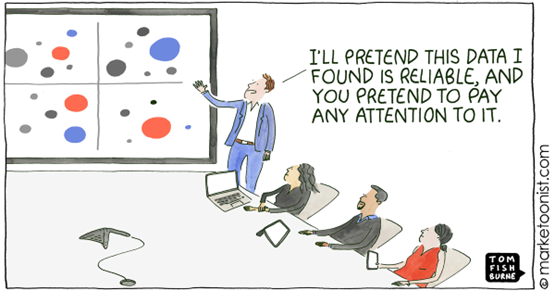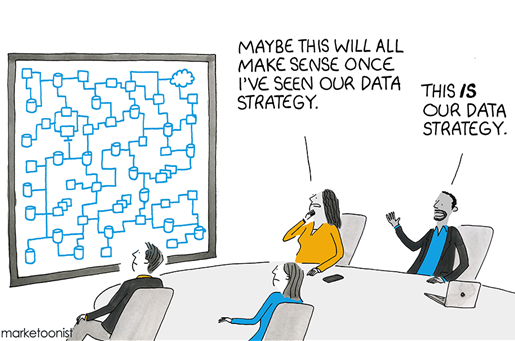Let’s face it: data doesn’t drive business value
28 February 2023

What jumps to your mind when you hear that "data is the new oil"? Let me guess: chances are you think about data as a precious resource that you can use to drive business value. But what about the costs to create value from your data?
The value of data lies in its potential.
Because let's face it: data (like oil) has no benefit in its raw format. Instead, the actual value of your data lies in its potential to generate insights or products: it needs to be extracted, refined, and processed before it can generate value.
That is not easy to do, and it takes a great deal of effort to transform data into an output that is valuable for your business. So, whenever you select a data project, you’d better be sure it creates more business value than costs.
But what does it cost to create value from your data? And how to quantify the business value of a data project?
What are the steps to create value from your data?
The first step is to ensure easy access to various data sources. That requires significant effort to clean and standardize your data, and the proper infrastructure to support data integration. However, if you can effectively integrate data from different systems and sources, you will find your business well-positioned to gain insights from your data and make better decisions.
The second step is data cleansing. After all, your business stakeholders want data that is ready to use. Therefore, access to clean data aggregated to the correct level is imperative. Efforts to cleanse and improve the quality of your data (removing duplicates or addressing missing values, for example) can go a long way towards making it usable for your business.
Third, data visualization is a powerful way to make insights more accessible and actionable. By using dashboards and charts, you can effectively communicate information to all stakeholders and facilitate data-driven decision-making. Modeling your data to reflect the underlying relationships and patterns is an even more advanced approach to transforming data into insights. By applying techniques such as machine learning and statistical modeling, you can gain insights that are difficult or impossible to obtain through simple data analysis.

What does it cost to create value from your data?
Creating value from your data does not come free of charge. Data storage by itself already represents a high cost. As your data volume grows, so does the need for physical storage space and processing bandwidth. The related costs can quickly increase, particularly if you collect and store large amounts of high-resolution images, videos, or other multimedia files. And don’t forget that the need for your business to comply with data regulations and laws also increases data storage costs.
Data security is another cost driver. As you collect and store data, your business becomes more vulnerable to data breaches and cyber-attacks. Such incidents can devastate your business, ranging from financial losses to damaging your company's reputation. You must, therefore, invest in security measures such as firewalls, encryption, and intrusion detection systems to protect your data.
And then, there is also the challenge of data quality and governance. Ensuring accurate, consistent, and properly labeled data is crucial for decision-making. That requires dedicated resources such as data engineers and data quality experts to validate, monitor, and maintain your data, for which the costs can be high.
Data analytics is another area where the need for specialized skills and technology to process, analyze and interpret data incurs high costs.
Finally, there is the issue of data archiving and disposal. As your business collects and stores data, you must consider how to properly archive and dispose of it when you no longer need it. That can be a complex and time-consuming process, and failure to properly archive and dispose of data can even lead to significant regulatory and legal penalties.

How to choose which data projects to pursue?
Even though creating value from your data comes with many costs and challenges, there is no way to avoid them. After all, you need data to improve your business processes, better understand your customer’s needs, and drive innovation.
The relevant question, therefore, is how you can choose which data projects to pursue and which ones to call off? First, such a decision requires you to quantify the business value of your data projects. But while financial metrics such as Return on Investment (ROI), Cost-Benefit Analysis (CBA), and Net Present Value (NPV) provide insights into the potential of a data project, it is equally essential to take other considerations into account. For example, are data projects aligned with your company's overall strategic objectives? And what is the potential impact on non-financial factors such as customer satisfaction, operational efficiency, and regulatory compliance?
The ability to turn data insights into actions is vital to unlocking the full potential of your data assets and gaining a competitive edge in today's economy. If you can identify the most relevant data projects and implement the related data-driven decision-making processes, your business will be well-positioned to stay ahead in the industry.
Need a hand?
You know that data by itself does not drive business value, but you need a hand to quantify the business value of potential data projects? Reach out to us. We're always there to help.
